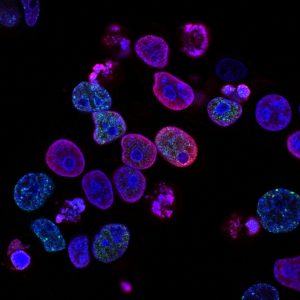Cholesterol
To understand Cholesterol and its role in Cardiovascular Disease let’s take a look at the role of lipids and fatty acids in our bodies.
Lipids
Lipids are made up of several different types of compounds. Liver and adipose cells synthesise lipids from glucose or amino acids through lipogenesis which is stimulated by insulin. Lipids exist in the body in several forms; Individual fatty acids, Triglycerides, Phospholipids, Sphingolipids, Glycolipids, Cerebrosides, Cholesterol, Fat-soluble vitamins – A, D, E, K, and esters of long chain fatty acids and high molecular weight alcohols.
Functions
- Energy production
- Storage of energy reserves
- Insulation via subcutaneous tissue
- Protection of visceral organs
- Absorption of fat soluble nutrients
- Cell Membranes require fatty acids and cholesterol
- Brain – rich in arachidonic acid (AA) and docosahexanoic acid (DHA)
- Hormones production
- Many signaling molecules are made of lipids or are lipid-soluble
Lipid Digestion
Triglycerides are esters of 3 fatty acids with 3 carbon glycerol. The fatty acids can be the same or varied, can be saturated or unsaturated and they can be short, medium, long or very long chain length.
Triglycerides make up the majority of dietary lipid with breakdown facilitated by pancreatic lipases in the intestinal tract. Triglycerides are the main form of dietary fat and the main form of stored adipose fat. They act as long-term fuel reserves. When dietary energy is limited, the fatty acids from triglycerides are used for circulation. Lipids provide the greater energy per 1g compared to carbohydrates and lipid catabolism can be inhibited if mitochondrial function is poor. When lipids are needed for energy or metabolism triglycerides are released into the bloodstream.

Fatty Acids
The ratio of fats, proteins and carbohydrates in the diet affects hormones that regulate fatty acids synthesis. Fatty acid synthesis increases when caloric intakes are increased and excess protein, carbohydrates and alcohol are present. There are two fatty acids that cannot be made in the body and so are essential in the diet – Linoleic acid (LA) and alpha-linolenic acid (ALA). In the course of evolution, human beings lost the ability to make LA & ALA. These fatty acids need to be supplied with diet = Essential Fatty Acids (EFA).
EFA’s
- Omega-3 fatty acids: α-linolenic acid (ALA) – essential in the diet. Eicosapentaenoic acid (EPA) and Docosahexaenoic acid (DHA)
- Omega-6 fatty acids: Linoleic acid (LA) – essential in the diet. Gamma linolenic acid (GLA) and Arachidonic acid (AA).
EFA’s are essential components of cell membrane, they help maintain membrane fluidity, are necessary for cell-to-cell communication and are essential for foetal brain development.
Today’s Western diet is Abundant in omega 6 – LA (plant oils, fried foods), AA (grain raised meat, dairy) and Low in omega 3 – ALA (flaxseed, pumpkin seeds) and EPA, DHA (fish). The enzymes that interconvert omega 3 and 6 are the same. Therefore if one fat is heavily in abundance the conversion of the other will be inhibited through competition for enzyme sites. Also in Western diets it is reported as being low B6, Mg, Zn and Mn – needed for EFA metabolism, and high in sugar and alcohol which inhibit these conversions.
- The European Food Safety Authority recommends a daily adequate intake of 250mg of EPA + DHA.
- This can be obtained through eating 2-3 portions of oily fish per week.
- For those that don’t consume fish, a fish oil or marine algal source providing 250mg of EPA + DHA is recommended
Fats in the Diet
Fats can offer many advantages over carbohydrates. They offer greater satiety value, are sources of essential fatty acids and fat-soluble vitamins and phytonutrients.
The Quality of lipids in the diet is also an important factor, therefore it is advisable to avoid;
- Overheated fats, burning or smoking fats.
- Rancid or oxidised fats.
- Trans fatty acids, hydrogenated or hardened fats and spreads.
- Mineral oils – they leach fat-soluble nutrients from the body.
- It is important to remember that the ability to digest, absorb and metabolise fats is crucial as undigested fat can have an adverse effect on the microbiome of the gut.

Cholesterol
Cholesterol is an important compound for cell structure and function. Its role in cardiovascular pathogenesis means its beneficial properties are often unknown. Cholesterol is essential for the synthesis of;
- Vitamin D and calcium metabolism.
- Cortisol, cortisone and related hormones for immune function and stress.
- Aldosterone for mineral and fluid balance.
- Oestrogen, progesterone, testosterone and other sex hormones.
- Bile salts and acids needed for digestion.
- Membrane integrity, especially in the brain.
- Lipoproteins, needed for triglyceride transport.
High total cholesterol & LDL can be present in
- Hypothyroidism.
- Cardiovascular disease.
- Biliary stasis.
- Insulin resistance and early stages of diabetes.
- Fatty liver.
- Familial hypercholesterolaemia.
- Multiple sclerosis.
- Low total cholesterol & LDL maybe indicate:
- Liver dysfunction.
- Heavy metal toxicity.
- Malnutrition.
- Autoimmune disease.
- Adrenal hyperfunction.
- Oxidative stress.
Low HDL may be present in
- Fatty liver.
- Metabolic syndrome.
- Oxidative stress.
- Heavy metal toxicity.
- Hyperthyroidism.
- Lack of exercise.
In general higher levels of HDL are considered good, however elevated HDL may also be present in some autoimmune processes.

Conclusion
Balance and support your cardiovascular and digestive systems to promote heart and gut health.
If you have any questions, concerns or would just like further information about how you can ensure a healthy diet for heart health, don’t hesitate to reach out and get in touch with us here at Health 4 U. Or you can book an appointment with Sinead through our online booking platform, and together we will help you understand and take control of your heart health.


